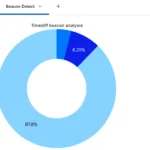The GodFather banking Trojan has introduced a highly sophisticated virtualization tactic, marking a significant evolution in mobile malware targeting financial and cryptocurrency applications. This technique enables attackers to hijack legitimate apps in real time, making account takeovers more seamless and harder to detect than ever before.
How the Virtualization Attack Works
Instead of the traditional method of overlaying fake login screens, GodFather now creates a complete, isolated virtual environment (sandbox) on the victim’s Android device. The malware installs a host application that contains a virtualization framework. This host downloads and runs a genuine copy of the targeted banking or cryptocurrency app within the sandbox.
When users launch their banking app, they are silently redirected to the virtualized instance controlled by the malware. All interactions—every tap, credential entry, and transaction—are monitored and controlled by the attacker in real time. Attackers can capture credentials, intercept sensitive data, and even interact with the app as if they were the legitimate user. The malware can hook into internal APIs to alter app behavior and bypass security features like root detection.
Because users interact with the real app (not a fake overlay), visual inspection cannot reveal the compromise. The malware also employs advanced obfuscation, such as ZIP manipulation and moving code to the Java layer, to evade static analysis and detection tools.
Impact and Targets
The latest campaign has focused on Turkish financial institutions, but nearly 500 apps—including banks and cryptocurrency wallets—have been scanned and targeted globally. Attackers can perform real-time fraud, steal login credentials, device PINs, and potentially bypass multi-factor authentication, leading to swift and nearly undetectable account takeovers.
While the current campaign is centered on Turkey, the malware’s capabilities pose a threat to financial institutions and users worldwide.
Technical Details
• Virtualization-as-a-Weapon:
The malware replaces the system’s standard Activity Manager with a custom proxy, controlling how apps are launched and managed within the virtual space. It uses a “stub” activity as a bridge, ensuring the virtualized app mimics the legitimate banking app’s behavior.
• API Hooking:
By hooking into internal APIs, the malware can modify app behavior, intercept data, and evade security controls.
Significance
This virtualization tactic represents a major leap in mobile malware sophistication. By running genuine apps in a controlled environment, GodFather erodes the trust between users and their devices, making even legitimate apps potential tools for espionage and theft. The approach is notably more deceptive and effective than previous overlay-based attacks, and it poses significant challenges for both users and security solutions.


